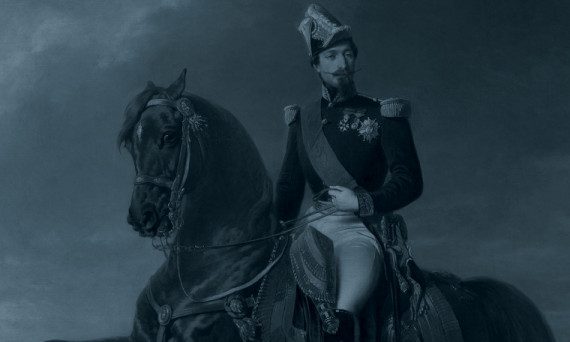On December 16, 2022 the sixth annual conference “Republicanism: Theory, History and Modern Practices” was held, organized by the EUSP Res Publica Center. The day turned out to be full and productive both for conference participants and for the audience who gathered on a winter morning in the Gagarin Hall of the European University.
The first panel was devoted to the origins of Caesarism, origins to be found in Antiquity and the Middle Ages. Konstantin Markov’s report was dedicated to one of the most remarkable fragments of Cassius Dio’s Roman History—Maecenas’ speech in Book LII. It is believed that in this fragment Dio outlined his own views on the ideal political system. Some researchers are inclined to interpret this system as absolute monarchy, while others see it as a variation on a mixed constitutional system. Konstantin Markov discussed the social environment in which Cassius Dio lived and what informed his arguments. Oleg Kharkhordin also addressed Cassius Dio’s text and the project of “mixing monarchy and democracy.” Kharkhordin highlighted the main concepts employed by Cassius Dio and compared Dio’s conception with previous tradition. Finally, in his report, Konstantin Erusalimskii turned to the image of Emperor Prus—a fictional brother of Octavian Augustus—in Muscovite ancient manuscripts and the role of this image in the translatio imperii discourse.
At the second section of the conference—“Caesarism in Russian Thought of the 18th-19th centuries”—Victor Kaplun turned to Immanuel Kant’s famous article on the Enlightenment. The problem of freedom of public use of reason and political freedom turns out to be the same for both the European and Russian Enlightenment. Natalya Potapova examined the policy of Alexander I in relation to the Grand Duchy of Finland, arguing that the Russian emperor in his rhetoric used strategies that can be called “Bonapartist”, simultaneously embodying both revolutionary and monarchical discourse. The section was concluded with a report by Andrei Teslya on the work of A.I. Herzen. The subject of the study was Herzen’s reflection on political events of the 19th century, namely the emergence of the Second Republic and the Second Empire.
The third section of the conference was devoted to the topic of Caesarism in European thought of the 19th-21st centuries. Nikolai Vlasov examined the figure of Otto von Bismarck, analyzing formal and informal mechanisms of power employed by the imperial chancellor and assessing how closely the “Bismarck regime” corresponded with two concepts of personal power— “Bonapartism” and “Caesarism”. Next, Yuri Basilov introduced listeners to the genealogies of the concepts of “Caesarism” and “Bonapartism” in German thought of the 19th – 20th centuries, based on the methodological approach of Begriffsgeschichte. In the last report of the section, Andrei Medushevsky presented reflections on the legitimacy of using the concept of “Bonapartism” as a conceptual framework when analyzing modern constitutional revolutions, referring, in particular, to the Russian experience.
In the next panel there was a productive discussion on the topic of Caesarism and external expansion, and the extent to which, in this context, imperialism can be considered a historical accident or a characteristic of the political system called Caesarism. Artemy Magun brought attention to the historian Guglielmo Ferrero, who carried out a critical analysis of Bonaparte's neo-Roman "empire" against the backdrop of the cataclysms of the First and Second World Wars and showed how the French Revolution destroyed concepts of legitimacy, which in turn led to a pan-European war. In the last presentation of the section, Alexander Filippov touched upon the topic of the current crisis of globalization and described what new challenges face our borderless global society.
The conference concluded with a keynote address by David Bell. During his talk, the Princeton University professor presented some of the main points from his recent book Men on Horseback (2020). Relying on Weber's concept of charisma as an analytical category, Professor Bell examined the cultural and political changes that made possible the emergence of a new form of political leadership. In Bell’s estimation, the figures of Napoleon Bonaparte and Simon Bolivar can be considered the prototypes of Caesarism in the 19th and 20th centuries.
Kristina Zakharova
Marina Alieva
The recording can be viewed here
